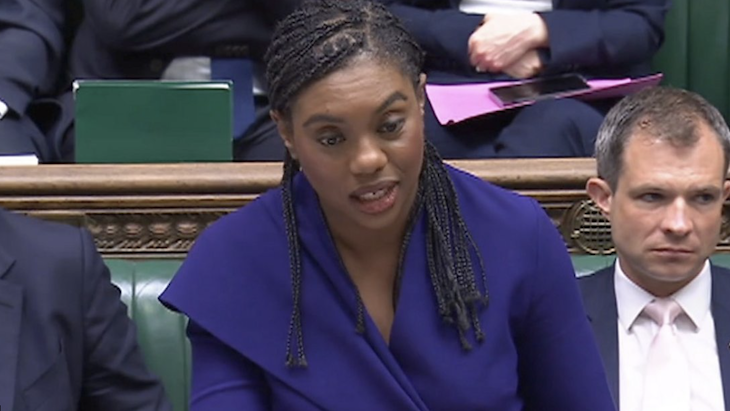Emmanuel Macron’s new government marks, in the words of the BBC, ‘a decisive shift to the right’. That is also the view of Le Monde, the newspaper of the French left, which quotes Socialist party chairman Oliver Faure’s description of it as ‘a reactionary government that gives democracy the finger’.
This government is not right wing. To quote Jordan Bardella, the president of the National Rally, ‘this “new” government marks the return of Macronism through a back door.’ Eighteen of the 39 ministers are Macronists including those responsible for education, finance, foreign affairs, Europe and defence. Another presidential loyalist is Agnès Pannier-Runacher, the minister for ecological transition, who hates Marine Le Pen’s National Rally so much she refuses to shake the hands of its 126 MPs. Ten ministers are republicans while the rest pretty much hail from a range of centre-left and -right parties. There are a handful of conservative ministers whose views run counter to the progressive culture that dominates Paris but they have been handed for the most part junior positions in the cabinet.
This is all theatre. Attal knows full well that this is not a right-wing government
Gabriel Attal, the former prime minister, and now the leader of Macron’s party in parliament, wasted no time issuing a threat to his successor, Michel Barnier: ‘I will ask the Prime Minister to state clearly…that there will be no going back on PMA (medically assisted procreation), the right to abortion, LGBT rights,’ said Attal, adding that his party will remain ‘faithful to [its] values’.
Barnier appeared on television on Sunday evening and promised that he had no intention of tampering with the ‘great laws’ of ‘social or societal progress’ that have been passed in recent years.
This is all theatre. Attal knows full well that a) this is not a right-wing government and b) even if it was, it would not be allowed to repeal any laws without the consent of the constitutional court. It was the constitutional court that stepped in at the start of this year to water down the government’s immigration bill, amending 35 of the 86 articles in the legislation to make it more palatable to progressives. The president of the constitutional court is Laurent Fabius, the doyen of the Socialist party.
No one was more infuriated by the court’s intervention than Bruno Retailleau, the Republican senator who was the principal architect of the original legislation. ‘The constitutional council is refusing to allow the French people to express their opinion on immigration, and is overstepping its role,’ he said. ‘Without doubt, the fight against immigration requires a reform of the constitution.’
Retailleau is the new Interior Minister, the only senior minister in the government who is a genuine conservative. The knives are already being sharpened. One newspaper on Sunday described him as ‘the bogeyman’ and Liberation ran an interview with the head of a human rights organisation who expressed her concern at Retailleau’s appointment.
Why the ‘bogeyman’? Retailleau is a practising Catholic for starters, which draws contempt from progressives. Retailleau is also disliked because he has made a name for himself as the right’s most vehement critic of Islam. He has described the headscarf as ‘the sign of sexual apartheid, the sign of women’s submission’ and he has railed against the concept of ‘Islamophobia’, describing it as ‘intellectual terrorism that plays into the hands of Islamist terrorists by victimising Salafists and paralysing the state.’
In Sunday night’s television interview, Barnier reiterated his ambition to bring mass immigration under control because it is ‘becoming unbearable’. How will this be done? ‘There will be practical measures like all our neighbours are taking,’ replied Barnier, an allusion to Germany, which last week tightened its borders.
It will be no easy task. Barnier and Retailleau have public opinion on their side (a poll last week found that 77 per cent of French want border controls reintroduced) but ranged against them will be the Paris ‘Blob’, which includes Macron, Attal, the constitutional court, much of the judiciary and a lot of the mainstream media. On the other hand, the Republican party dominates local politics in France. In the 2021 departmental elections, for instance, they won 65 councils, 38 more than the left. Macron’s centrists won just three councils.
Barnier and Retailleau have few allies in Paris, but in the provinces they have many which will help them introduce legislation at local level. Similarly, they have a friend in Giorgia Meloni, the Prime Minister of Italy, who shares their economic liberalism and social conservatism. Meloni was – and still is – demonised as a ‘fascist’ because her Brothers of Italy party has a vague lineage with Benito Mussolini; the same goes for Marine Le Pen and her party’s history.
It will be much harder to use this line of attack against Barnier and Retailleau, whose Republican party has no controversial historical baggage. Neither do they. There has never been a whiff of scandal surrounding Barnier in his 50 years in politics, a rarity among a political class not known for its rectitude.
In an interview in Le Point magazine at the weekend, Guillaume Larrivé, a confidant of Retailleau and the president of a conservative think tank, applauded the appointment of the new Minister of the Interior. ‘He has not been appointed to comment on news stories or to inaugurate chrysanthemums,’ said Larrivé. ‘Nor will he be seeking applause from the pseudo-progressive left.’
The applause Retailleau wants is from the silent majority, who for years have been demanding action on mass immigration and the insecurity that feeds off it.








Comments